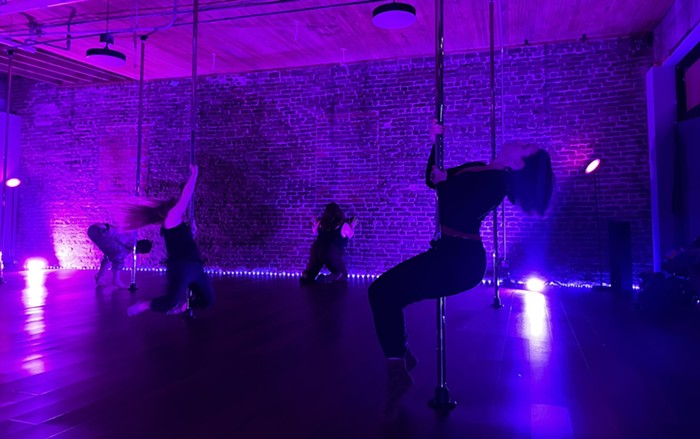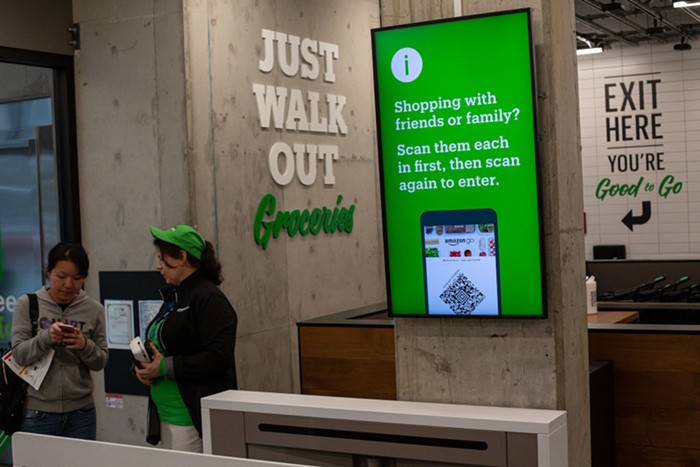
There is no better place to be than the Pacific Northwest... at least for three months a year. From now until October, most of the country will be engaged in a continual battle against swamp crotch—a battle that can only be won by putting your underwear in the freezer or spending all summer camped inside with air conditioning. Not here. Aside from the occasional hot flash, our moderate temps and low humidity mean it doesn’t feel like you’re constantly being hugged by a large, sweaty man every time you step outside. We don't need AC, and until very recently, few of us had it.
This, however, is changing. Seattle has, historically, been among the least air-conditioned cities in the U.S. As of 2015, only 30 percent of homes had AC. But now, with tens of thousands of new housing units being built each year, AC is increasingly standard. The Seattle Met looked at the local rise of air conditioning and Jamey Stephens of Evergreen Home Heating and Energy told the mag that while winter has always been the busy season for HVAC people in this area, that's shifted. Not long ago, the waiting time to get AC installed was two weeks. Now it's up to three months.
It's not hard to see why more and more people want AC. The last two summers have been blanketed by wildfire smoke, and no one wants to wear a face mask inside. Without AC, you're left to either breathe in particulate matter or swelter with your windows shut. Both options are shit. And it's also true that temperatures are getting hotter. Just last week, a study published in the journal Science Advances said that Seattle could be facing severe heat waves in the coming years, with temperatures routinely in the high 90s. If/when that happens, AC will be a necessary part of life.
But we are not there yet, and AC doesn't come without costs. It is, for instance, loud and annoying. In the South, where I'm from, the sound of summer nights—cicadas, bullfrogs, the neighborhood kids shooting off fireworks—is drowned out by the hum of everyone's goddamn AC. You can barely hear your next door neighbors scream at each other after a dozen or so Michelob Ultras. And there's the cost to the planet. Air conditioners account for an estimated 5 percent of our annual energy consumption in the US, and they spew about 100 million tons of carbon dioxide into the air each year. Unless you’re the president, you probably understand that releasing carbon dioxide into the atmosphere exacerbates global warming, and so while AC may temporarily solve your swamp ass problem, in the end, it only makes the air outside even hotter.
AC has remade our landscape. Until the wide adoption of air conditioning, much of the Southwest, for example, was unlivable for parts of the year. But now, thanks to AC, you can easily live in even the hottest of climates. People move from air-conditioned homes to air-conditioned cars to air-conditioned offices and then back again, hardly stepping outside at all. It's changed our buildings, too. Prior to the widespread adoption of AC, homes were designed with the climate in mind. They had more windows and higher ceilings to allow for airflow. They had better insulation and porches that people sat on in evenings (or even slept on hot summer nights). But today, in much of the country, as soon as you feel a hot breeze, you go inside, shut the windows, and crank up the air.
Ninety percent of America is air conditioned and much of the world is going that way, too, but there are things you can do to cool down your space without AC. It may seem counterintuitive, but when you leave your house in the morning for work (or when you're staying inside watching porn instead of going to work), shut your windows and lower your blinds. This keeps the heat out during the hottest part of the day. And then, when the sun dips low in the sky and the temperatures drop, open your windows and let the cool air in. It's simple, but it works. It might not be as cool as AC, but nothing feels better than the sweet sense of moral superiority you get from forgoing AC altogether.



















